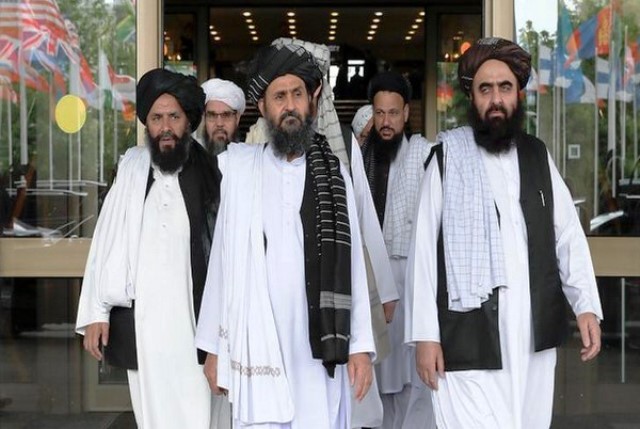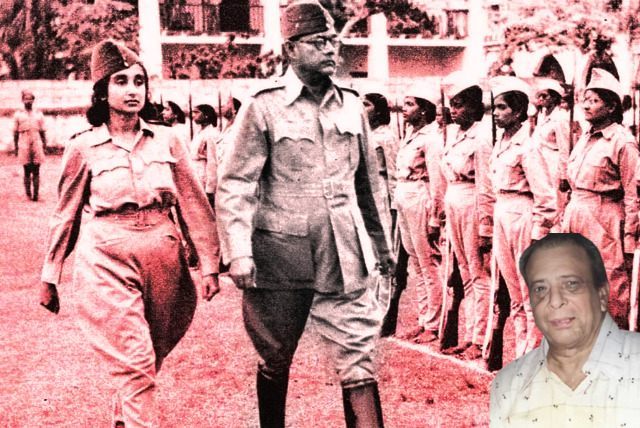
Living With The Taliban
Two years after it evacuated from Afghanistan, the United States is still analysing the consequences of engaging militarily in a nation/region and those that entail withdrawal, with “lessons for the future,” as per the latest report submitted to the US Congress by US Special Inspector General for Afghanistan John F Spocko.
More detailed and forthright is the response of former US envoy to Afghanistan and Pakistan, Ryan Crocker. He said at the congressional hearing: “The first is to be careful about what you get into. Military interventions bring consequences.., consequences that we cannot even imagine, let alone plan for.” The second lesson was that “a withdrawal can have consequences as far-reaching and as serious as those of an intervention.., (as) we simply cede the field to our adversaries.”
One can only hope that this wisdom by hindsight would help in future, given America’s penchant for intervention and compulsion to stay on top of the global power game.
Crocker lists the “third lesson” of the need for “strategic patience.” The US failure to do so in Afghanistan, he said, had “its greatest impact… next door in Pakistan” where “allies came to fear our lack of strategic patience.” Crocker is wrong here and adds to the American delusion. Pakistan sheltered the Taliban for two decades hoodwinking the world and facilitated their return. Then Prime Minister Imran Khan called the US exit “freedom from slavery”. Far from gaining any “strategic depth”, it is running back to the US “to combat terrorism and ensure regional stability.” The US may oblige, without direct intervention. So, here we go again!
Zalmay Khalilzad midwifed the 2020 Doha Agreement with the Taliban because Donald Trump wanted to “bring the boys home” in time for his presidential re-election. ‘Boys’ returned, badly bruised, under Joe Biden. Khalilzad proposed that Afghan politicians, now living in exile, return to their country, “make a unity government and negotiate with the Taliban.” One may ask if he would risk returning to Kabul to be part of the talks with the ‘good’ Taliban.
American media and think tank reports indicate that the US thinks the Taliban may be “more willing to oblige now than ever before,” because of the growing rivalry between them and other militants, particularly the ISIS-K. Again, this delusionary vision needs to be cleared with some more introspection. Although threatened, the Taliban are unlikely to beg the world community for help.
Kabul has recently appealed only for “more transparent” dealing by the world, which can be interpreted as diplomatic recognition. But there is not even a hint in the address by their chief, Heibatullah Akhundzada, about sharing power with anyone, or a better deal for women. On both scores, the Taliban, perhaps, consider themselves as more Muslims than others. The Islamic nations are extremely wary, not for lack of solidarity but for the Taliban’s threat potential.
ALSO READ: How To Deal With A Stubborn Taliban
Other than this, the world cannot but worry on two counts: the abject poverty of the Afghan people, a majority of whom, as per the UN, do not get enough food and medical help. And as the Taliban must, Afghanistan has become a terror hub whose impact can go well beyond its borders and the region. The ISIS-K has relocated from West Asia and Al Qaida operates directly and through affiliates from Arab and Central Asian militant groups.
More experienced than they were and more cautious, but the Taliban are not very different from what they were when in power (1996-2001). There have been 51 bans on women, stymying their normal existence and taking away whatever freedom they gained during the Soviet era of the 1980s and the US-one during 2002-2021.
A mix of defiance and resignation pervades in Kabul. Those in government are under the firm control of their ideological mentors in Kandahar. They are ready to sit out for any recognition that would have to come on their terms.
The Taliban have shown tactical patience in warding off global pressures amidst poverty and isolation. Despite the obvious advantage, Pakistan enjoys as the principal provider of access to the world outside, a landlocked Afghanistan has sought to leverage its position. For one, it wants to bargain any cooperation on reining in the marauding Tehreek-e-Taliban Pakistan (TTP) by seeking larger trade and more trading points on the border. For Kabul, the TTP is a point of leverage against Islamabad. The latter, so far, has no clue how to tackle the TTP, with or without Kabul’s cooperation.
In a bitter irony, Pakistan’s Ambassador to US Masood Khan has said that the TTP and other militant groups were using weapons left behind by US troops for attacking targets in Pakistan. As per American media reports, the US forces left behind $7billion worth of military equipment and weapons, including firearms, communications gear, and even armoured vehicles. While Kabul enjoys the bigger booty, small arms and ammunition are used by the TTP to make violent forays targeting Pakistani security forces.
The Kabul rulers treat TTP, whose fighters had fought alongside in 2021 as ideological brothers and guests – the same sentiment that made them host Osama bin Laden and his successor, Ayman al-Zawahiri. The US eliminated the latter with Pakistani logistic support. That, despite denials by Islamabad and silence by Washington, is likely to continue.
Retired Pakistani diplomat Ashraf Jahangir Qazi writes in Dawn (August 17, 2023): “Mullah Akhundzada also asks pertinent questions. Why out of Afghanistan’s six neighbours only Pakistan, which has fenced almost its entire border, complain of terrorism from Afghanistan? Is it because Pakistan cannot contain the TTP which actually operates from inside Pakistan with on-and-off support from certain quarters?” For obvious reasons, Qazi does not elaborate on “certain quarters” that are doubly betrayed, by the Taliban and the TTP.
As the US loses strategic space, the net gainer is China. The Afghan-China border trade via the Wakhan Corridor is set to begin even as Kabul seeks Chinese investment in copper mining and energy/infrastructure projects. With Pakistan, its biggest ally in the region, China is working to extend the China-Pakistan Economic Corridor to Afghanistan. Even if fraught with security risks and heavy investment, the ‘CPAEC’ opens new vistas for China. Pakistan wants it extended to Turkey as well. Even a partial success of all these plans cannot leave Afghanistan untouched.
This may seem far-fetched today – so was the CPEC – but fits into China’s plans in the vast region where its economic footprint can grow wider. Deft diplomatic moves in facilitating an Iran-Saudi Arabian rapprochement earlier this year have shown that China can pull off successes in areas that the West for long considered its backyard.
Two years of Taliban are but a speck in Afghanistan’s long history as the crossroad of invaders and emperors, conquerors, scholars, builders and travellers. Sadly, however, peace has eluded its people. There is no idea how many more generations will have to suffer.
The writer can be reached at mahendraved07@gmail.com
Read More: http://13.232.95.176/



